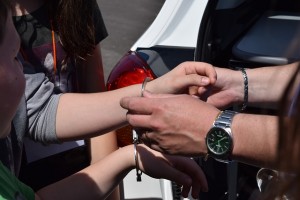The legal drinking age in the state of New Jersey is 21, and the minimum legal driving age is 17. What happens if an underage drinker gets behind the wheel of a car in New Jersey? The penalties and collateral consequences can be devastating. Because underage drinkers cause a disproportionate number of alcohol-related auto fatalities, the state has enacted stricter laws and harsher penalties for drunk drivers under the age of 21.
New Jersey is a no-tolerance state. If a minor is pulled over under suspicion of drunk driving, a Breathalyzer test will be administered. However, if the test results indicate that they have a blood alcohol content (BAC) of .01 percent or higher, they can be charged with a DUI. For drivers over the age of 21, driving with a BAC of .01 percent is not in itself illegal—in order to be charged with DUI an adult generally must have a BAC of .08 percent or higher.
Underage Drinkers May Face Additional Related Charges
In addition to being charged with a DUI, underage drinkers may be charged with:
- Being a minor in possession of alcohol
- Soliciting alcohol
- Possession of false identification
- Moving and vehicle maintenance violations
- Distributing alcohol to other minors if there were underage intoxicated passengers in the car
Penalties
Drivers under the age of 21 who are convicted of driving under the influence face:
- A 30 to 90-day driver’s license suspension (for high rate DWI’s with a BAC of .10 or higher, an underage drinker could lose their license for up to a year)
- 15 to 30 days mandatory community service
- Mandatory participation in an Intoxicated Driver Resource Center (this involves a detainment period of between 12 and 48 hours)
- If under the age of 17 and unlicensed, a 30 to 90 delay in processing your driver’s license
- Up to 30 days in jail
- Fines between $250 and $500 depending on the driver’s BAC
- Surcharges in excess of $3,500
Collateral Consequences
If you are convicted of an underage DWI, you may have difficulty achieving your educational goals. Colleges and universities perform background checks, and a conviction on your record could be cause for an admission or scholarship denial.
An underage DWI may also pop up on an employment background check. In today’s market, where there are many quality applicants competing for every job, a DWI on your record could prevent you from getting work.
Car insurance companies are known to terminate coverage to minors convicted of driving under the influence, or refuse to renew. If coverage is offered, the rates tend to be very high due to the risk the insurer must assume. Some companies raise the monthly premium by $100-$300 a month for the next three to five years.
Underage drivers may also need to submit an SR-22 certificate to reinstate their license after a period of suspension. This forms tells the DMV that a driver is insured, and many companies furnish this form to the DMV for their insureds.
Defending Against Underage DWI Charges
There is an array of defenses available to minors charged with DWI. One of the most commonly employed defenses is that many natural and artificial substances can cause a breath test to register a BAC reading of .01 percent.
There are also defenses available based on your right to be free from unreasonable searches and seizures under the Fourth Amendment. If your constitutional rights were violated, any illegally obtained evidence cannot be used against you at trial.
New Jersey DUI Lawyer Edward M. Janzekovich Defends Minors Accused of Driving While Intoxicated
If you or your child has been charged with an underage DUI, reputable New Jersey DWI lawyer Edward M. Janzekovich can help. We understand the stress you are under as you face unknown, potentially life altering consequences. You do not need to face these battles alone. We strive to ease our clients’ minds by thoroughly explaining the legal process, and our goal is always to get our clients’ cases dismissed altogether.
To schedule your confidential consultation today, call us at 732-257-1137 or contact us online today. We represent clients throughout New Jersey, including Ocean County, Monmouth County, Mercer County, Middlesex County, Union County and Somerset County.



 In New Jersey, if you are convicted or
In New Jersey, if you are convicted or